A B C D E F G H I J K L M N O P Q R S T U V W X Y Z
Jan-Willem Alffenaar, Associate professor, University Medical Center Groningen, Groningen, Netherlands
Jan-Willem C Alffenaar started his career in 2002 as pharmacist at the department of Hospital and Clinical Pharmacy and Toxicology of the University Medical Center Groningen in the Netherlands. From 2005-2008 served as a hospital pharmacist in residence at the same hospital. During his routine TDM training he developed great interest into infectious diseases in critically ill patients. This resulted in a PhD studentship, which was supervised by Prof. DRA Uges, Prof. TS van der Werf, Ph.D. and Prof JGW Kosterink. The subject of his thesis was “The pharmacokinetics and TDM of antimicrobial agents, in particular antifungal agents and anti-TB drugs in critically ill patients”. He finished his thesis in 2009 and has been Principle Investigator of many clinical studies evaluating clinical pharmacology of antimicrobial drugs. In 2012 he finished his training in clinical pharmacology. Dried blood spot analysis got his specific attention as it enables TDM in resource limited settings. Recently he was appointed as associate professor at the Medical Faculty of the University of Groningen with the scope of optimizing antimicrobial therapy based on PK/PD principles. At this moment he is supervising 14 PhD and PharmD-PhD students.
Yuichi Ando, Department of Clinical Oncology and Chemotherapy, Nagoya University Hospital, Japan
Yuichi Ando has been a professor of the Department of Clinical Oncology and Chemotherapy, Nagoya University Hospital, Nagoya, Japan, since May 2012, making full contribution to medical care, professional education and research in cancer chemotherapy. Dr. Ando received M.D. from the Nagoya University School of Medicine, Nagoya in 1990. Following completing his residency training in internal medicine at the Japanese Red Cross Nagoya First Hospital, Nagoya, and board certifications in internal medicine and respiratory medicine, Dr. Ando received Ph.D. in Medical Science from the Graduate School of Nagoya University, Nagoya, in 1999. During his Ph.D. program, Dr. Ando was trained for molecular pharmacology at Hokkaido University, Sapporo, Japan. Dr. Ando completed his postdoctoral fellowships as a Research Fellow of Japan Society of the Promotion of Science, Japan, and as a visiting fellow of the National Institute of Health, Bethesda, MD, from 1999 to 2002. His interests include developing cancer chemotherapy based on clinical pharmacology and conducting early-phase clinical trials of anticancer agents under development. Dr. Ando is the recipient of 2004 Incitement Award of the Japanese Cancer Association and 2002 Merit Award of the American Society of Clinical Oncology. Dr. Ando is a fellow of the Japanese Society of Medical Oncology and a Diplomate, Subspecialty Board of Medical Oncology.
Volker Auwärter, Institute of Forensic Medicine, University Medical Center Freiburg, Germany
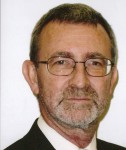
David J. Berry, Consultant Clinical Scientist, Therapeutic Drug Monitoring Unit, Chalfont Centre for Epilepsy, UK
Dave Berry was awarded a PhD from Surrey University in 1982 and is a Fellow of the Royal College of Pathologists. In 1967 he commissioned the new Medical Toxicology Unit laboratory (MTL) and brought it to operational readiness initially developing methods to detect and determine drugs and poisons in biological fluids and provide a service for identification and measurement of the increasing range of drugs encountered in self-poisoning. Dave subsequently developed procedures for detecting abused drugs in the urine of dependent patients and in 1969 he started to develop sensitive assays for some therapeutic drugs e.g. anticonvulsants, cardioactives, antidepressants. These assays were used to investigate the value of measuring drug concentrations in plasma to assist optimization of patient treatment and until recently these procedures provided the basis of a comprehensive TDM service. Dave was Consultant Clinical Scientist in the TDM section of MTL until December 2010 where he specialised in the management of epilepsy with the help of measured drug levels. In 2011 he was appointed Honary Consultant Scientist at the Epilepsy Society. His main interests are analytical method development, its application to investigate drug pharmacokinetics and subsequent extension into patient management. Dave has published almost 100 peer reviewed papers and invited articles; he has also produced numerous posters and given oral presentations at International/National Congresses. He is an on the editorial board of Epilepsia and TDM; he also referees papers for several other journals. Dave has undertaken numerous conjoint projects with various clinical and academic groups; he has supervised and examined a number of PhDs and other research degrees. He is also a visiting lecturer at several UK/overseas Universities and a member of several Professional bodies including ILAE, BPS, IATDMCT, ACB, RSC, FSS (MFSSoc), TIAFT, and AACC (including TDM/Toxicology division).
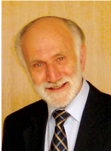
Professor Frank M.C. Besag, BSc, MSc, PhD, MB ChB, DCH, FRCP, FRCPsych, FRCPCH. Consultant Neuropsychiatrist, South Essex Partnership NHS Foundation Trust and Visiting Clinical Professor, School of Pharmacy, University of London, UK
Professor Besag graduated from Birmingham University medical school with the Queen’s Scholarship (top student), honours in paediatrics and distinctions in pathology and social medicine. He trained at Great Ormond Street, Royal Manchester Children’s, the Hammersmith and the Maudsley Hospitals. Past and present honorary consultant posts include Great Ormond Street, Kings College and the Maudsley Hospitals. He is an Honorary Senior Lecturer at the Institute of Psychiatry and is a fellow of the Royal Colleges of Physicians, Psychiatrists and Paediatrics & Child Health. He is visiting Professor at the University of London. He was previously Medical Director & Chief Executive of The National Centre for Young People with Epilepsy before returning to the NHS. He has lectured in more than 30 countries. He has published in and is a referee for, several international journals. His special interests are in brain-behaviour relationships, paediatric psychopharmacology, emergency treatment of seizures, new antiepileptic drugs, antiepileptic drug monitoring/interactions and relationships between epilepsy, learning and behaviour.
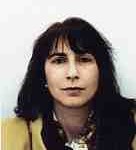
Eliane M. Billaud, Laboratoire de Pharmacologie-Toxicologie, Hôpital Européen Georges Pompidou, Paris, France
Dr Billaud is a recognised expert in TDM promotion and evaluation. In close relationships with clinical and pharmacovigilance units, she have developed Immunosuppressive drugs TDM and Drug-drug interactions management, extended to anti-infectious drugs, specially antifungals in immunocompromised patients such as lung transplant cystic fibrosis patients.
She is also involved in catecholamines measurement for the screening and diagnosis of phaeochromocytoma and paraganglioma.She is an active member of the IATDMCT as a French delegate at the IS Committee and has recently started with the Antifungal drugs TDM Committee chairing.
She is member of the ISHLT (International Society of Heart-Lung Transplantation) and the ESOT (European Society of Organ Transplantation).
She is a regular member of several French scientific and regulatory (French Health Product Safety Agency) working groups devoted to drugs evaluation and TDM.
She is also a technical expert for the Pharmacology-Toxicology Program of the French Laboratory Accreditation Organism (COFRAC).
Dr Billaud’s research has focused on clinical pharmacology of IS drugs and TDM role in drug management in transplantation. She has a particular interest in the management of IS drug-drug interactions, specially with anti-infectious drugs in immunocompromised patients and her work is reflected an important experience on the special population of cystic fibrosis lung transplant patients.
She is now developing an international collaborative work on antifungal drugs TDM, specially for azole drugs.
She is still collaborating to the French paraganglioma network.
Dr Billaud has published more than 40 peer reviewed international publications and has authored some book chapters. She also is requested as a reviewer in transplantation or pharmacological Journals.
 Mercè Brunet, Director of the Pharmacology and Toxicology Unit, Biomedical Diagnostic Center, Hospital Clínic; Professor of Medicine, University of Barcelona, Spain
Mercè Brunet, Director of the Pharmacology and Toxicology Unit, Biomedical Diagnostic Center, Hospital Clínic; Professor of Medicine, University of Barcelona, Spain
Professor Brunet received her PD from the University of Barcelona, Spain in 1980 and got her PhD in Pharmacology at University of Barcelona in 1993.
Professor Brunet is currently Head of Pharmacology and Toxicology Unit, Service of Biochemistry and Molecular Biology at the Hospital Clínic of Barcelona.
Professor Brunet has been a Councilor of the Steering Committee of International Association of Therapeutic Drug Monitoring and Clinical Toxicology (IATDMCT) and is now Secretary of the Catalonian Society of Transplantation, and has served on many Committees for the American Transplant Congress and the National Research Nets of Health.
Professor’s Brunet research interests are centered on the measurement of biomarkers that may reflect immunosuppressive drugs’ exposure and effect, using pharmacokinetic, pharmacogenetic and pharmacodynamic approaches, as well as PK/PD immunosuppression clinical trial designs. She is the leader of the Biomarker Working Group of the Scientific Committee of Immunosuppressive Drugs of the IATDMCT. Dr Brunet’s main research interest includes the development of novel translational, diagnostic, and pharmacokinetic/ pharmacodynamics monitoring strategies of antitumor and antiretroviral drugs.
Lee Blum, Assistant Laboratory Director, Scientific Director-FUDT, NMS Labs, Willow Grove, USA
Dr. Blum earned a Ph.D. in pharmacology and works in the field of bioanalytical toxicology testing bodily fluids and tissues for drugs, intoxicants, and chemical exposures in support of the forensic, clinical, and occupational communities. His current position is as Assistant Laboratory Director and Toxicologist with NMS Labs, Willow Grove, PA, and as an adjunct faculty member in the School of Population Health at Thomas Jefferson University, Philadelphia, PA. In addition to being involved in various professional organizations, he is a member and former chair of the AIHA Biological Monitoring Committee and a member of the ACGIH BEI Committee.
Dr. Yale H. Caplan, Ph.D., D-ABFT, Baltimore
Dr. Yale H. Caplan received his Bachelor’s degree in Pharmacy (1963) and Ph.D. degree in Medicinal Chemistry (1968) from the University of Maryland at Baltimore (School of Pharmacy). He is a Board Certified forensic toxicologist (American Board of Forensic Toxicology). He was Chief Toxicologist for the Office of the Chief Medical Examiner (State of Maryland) and Scientific Director of the State of Maryland’s Alcohol Testing Program (1974-1991). He was Director of Toxicology and Forensic Toxicology for Quest Diagnostics, (formally Maryland Medical Laboratory) in Baltimore (1977-1999). He was Laboratory Director for the State of Maryland, Division of Parole and Probation (1999-2012). Dr. Caplan is Adjunct Professor in the Department of Pharmaceutical Sciences of the University of Maryland School of Pharmacy, a scientific consultant to Aegis Sciences Corporation and a member of the State of Maryland Forensic Laboratory Advisory Committee.
Dr. Caplan’s professional activities and awards include: President of the American Board of Forensic Toxicology (1988-2008) and recipient of the Board’s Distinguished Service Award (2008); President of the American Academy of Forensic Sciences (1987-1988), and recipient of the Academy’s Rolla N. Harger Award (1989) (forensic toxicology) and Distinguished Fellow Award (1996); President of the Society of Forensic Toxicologists (1981); Chairman (1991-1993) of the National Safety Council’s Committee on Alcohol and Other Drugs and recipient of the Council’s Robert F. Borkenstein Award (2000); Chairman of the Maryland Section of the American Chemical Society (1973) and recipient of the 1994 Maryland Chemist Award. He is Associate Editor of the Journal of Analytical Toxicology and serves as an advisor to attorneys and government agencies regarding alcohol and drug testing issues.

Uwe Christians, IC42 Integrated Solutions in Systems Biology for Clinical Research & Development, USA.
Dr. Christians received his M.D. (with highest honors) and his Ph.D. in Experimental and Clinical Pharmacology and Toxicology from the Medizinische Hochschule Hannover, Hannover, Germany, where he is a board-certified pharmacologist, toxicologist and clinical pharmacologist. Dr. Christians was awarded a Master in Research Quality Assurance and he is certified by the American Board of Clinical Pharmacology.
Dr. Christians currently holds two faculty appointments, one as Professor in the Department of Anesthesiology (University of Colorado) and as Professor (apl.) in the Department of Pharmacology, Medizinische Hochschule Hannover in Germany. He is the author of 230 peer-reviewed original research articles, reviews and book chapters. His main research interest is the development of novel translational, diagnostic and clinical monitoring strategies.

William Clarke, Associate Professor of Pathology, Johns Hopkins University School of Medicine, USA
Dr. Clarke received his Ph.D. in Analytical Chemistry from the University of Nebraska in Lincoln in 2000, followed by a post-doctoral fellowship in Clinical Chemistry at the Johns Hopkins School of Medicine, ending in 2002. In addition, he received an MBA focused on medical services management from the Carey School of Business at Johns Hopkins in 2007. Following his post-doctoral fellowship, he has remained at Johns Hopkins, where he is an Associate Professor in the Department of Pathology, as well as the director of both Point-of-Care Testing and Clinical Toxicology for the hospital. Dr. Clarke is board certified in Clinical Chemistry by the American Board of Clinical Chemistry, and is a Fellow of the National Academy of Clinical Biochemistry. His research interests include method development and evaluation for therapeutic drug monitoring, clinical toxicology, point-of-care testing, and development/validation of biomarkers for use in drug management.
Lewis Couchman, Clinical Scientist, King’s College Hospital, London, UK
Lewis began his work at The Medical Toxicology Unit, London, in 2003. After returning to Loughborough University to complete his undergraduate degree, he returned to work at the MTU in 2005, before undertaking a formal four-year clinical scientist training programme specialising in analytical toxicology, during which time he moved to King’s College Hospital, London. The training programme included a part-time MSc degree in analytical toxicology at the Queen Mary University of London. Lewis successfully completed the degree and training programme and now works as a registered clinical scientist at King’s College Hospital in the departments of clinical biochemistry and toxicology.
Lewis is involved with research and analytical method development/validation using HPLC, and LC-MS(/MS) for a range of toxicology- and biochemistry-related analytes. Lewis has an interest in the use of TurboFlow technology for high-throughput analysis of drugs and endogenous compounds used in clinical diagnosis. He has published reviews on LC-MS in analytical toxicology, the use of LC-MS in steroid analysis, and on TurboFlow technology, and original research articles on vitamin D, porphyrins, and clinical audits relating to the TDM of clozapine and norclozapine. Lewis is currently studying for a PhD at the University of Leicester, developing novel mass spectrometric immunoassay (MSIA) methods for the measurement of a number of analytes, including proteins and peptides, relevant in the determination of vitamin D status in different disease populations.
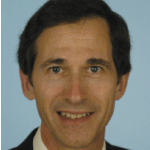
David Cowan
London Drug Control Centre which he co-founded in 1978. The Centre has been in the forefront of introducing advances in anti-doping science for many years. The Centre recently successfully delivered the analysis of the samples collected for the comprehensive drug testing of the athletes taking part in the London 2012 Olympic and Paralympic Games at which the new biomarker test for the use of human growth hormone resulted in the disqualification of two athletes.
The Drug Control Centre is the only WADA accredited laboratory in the UK and one of just 33 world-wide. It is part of the Department of Forensic Science and Drug Monitoring at King’s College London, which he helped to found and was its first Head. The department runs the world-leading M.Sc. in Forensic Science and, more recently, the M.Sc. in Analytical Science for Industry and the M.Sc. in Analytical Toxicology.
Professor Cowan holds a Chair in Pharmaceutical Toxicology and is a Fellow of the Royal Pharmaceutical Society. He was awarded the International Olympic Committee Trophy for Ethics in Sport in 1998. Last year he was awarded the Media Personality of the year by King’s College London and was runner up in the Excellence in Innovation and Impact category.
He has published extensively in the field of pharmaceutical analysis especially in relation to the detection and quantification of drugs and their metabolites in complex body fluids and detecting drug administration in sport.
Serge Cremers, Assistant Professor of Medical Sciences (in Medicine), Columbia University Medical Centre, USA
Dr. Cremers is Assistant Professor of Pathology and Cell Biology at Columbia University Medical Center in New York City. He is Director of the Biomarkers Core Laboratory of the Irving Institute for Clinical and Translational Research at Columbia and Director Clinical Pharmacology and Toxicology in Special Chemistry at New York Presbyterian Hospital. He received his PharmD from Groningen University and his PhD from Leiden University in The Netherlands. After a fellowship in clinical pharmacokinetics at Novartis Oncology in NJ he joined Columbia University in 2006. His research focuses on clinical chemistry of metabolic bone diseases and therapeutic drug monitoring and clinical pharmacology of drugs.
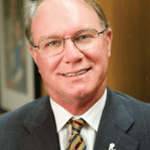
William E. Evans, Pharm.D.
Dr. William E. Evans is Director and Chief Executive Officer of St. Jude Children’s Research Hospital (SJCRH), and is a Professor at the University of Tennessee Colleges of Medicine and Pharmacy.For the past 30 years, his research at St. Jude has focused on the pharmacogenomics of anticancer agents in children, for which he has received three consecutive NIH MERIT Awards from the National Cancer Institute (1987-2015). The major disease focus of his research is acute lymphoblastic leukemia in children.
Dr. Evans has authored over 300 articles and numerous book chapters. He has received several national awards for his research, including the 2009 Pediatric Cancer Award from the ASCO (shared with Mary V. Relling of SJCRH) and the 2009 Team Science Prize from AACR (shared with colleagues at St. Jude), the 2011 Remington Medal from APhA and the 2013 Oscar B Hunter Award from ASCPT. He is recognized by ISI as a “Highly Cited Scientist” in pharmacology, based on citations of his research publications being in the top 1%. He was elected to the Institute of Medicine of the National Academy of Sciences in 2002.
Dr. Evans has served as CEO of SJCRH since 2004, during which time St. Jude has been ranked annually in the top 10 best places to work in academia by The Scientist magazine, ranked the #1 Children’s Cancer Hospital by USNWR and Parent Magazine, and in the Fortune 100 Best Places to Work.
Bryan Finkle, Chairman and Founder, Sports Medicine Research & Testing Laboratory, Salt Lake City, USA
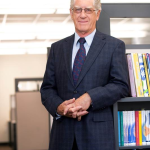 Dr. Bryan S. Finkle is a consultant in pre-clinical new drug development and medico-legal toxicology. For ten years, 1973-1983, Dr. Finkle was the Director of the Center for Human Toxicology at the University of Utah, and from 1983-1989 was Director of the Department of Pharmacological Sciences at Genentech, Inc. South San Francisco, California. During this period he was Associate Professor of Pharmacology-Toxicology in the College of Pharmacy, and Department of Pathology in the College of Medicine, University of Utah Health Sciences Center. Until 1996, Dr. Finkle was the Vice President for Development and Regulatory Affairs at Canji, Inc., a biotechnology company dedicated to gene therapy using tumor suppressor genes, novel cancer therapeutics and diagnostics. From 2000-02 he was associated with NewBiotics Inc., a biotechnology company dedicated to the development of enzyme catalyzed therapeutic agents. He continues to consult for medical biotechnology companies, particularly Ligocyte Pharmaceuticals concerning the development of recombinant vaccines.
Dr. Bryan S. Finkle is a consultant in pre-clinical new drug development and medico-legal toxicology. For ten years, 1973-1983, Dr. Finkle was the Director of the Center for Human Toxicology at the University of Utah, and from 1983-1989 was Director of the Department of Pharmacological Sciences at Genentech, Inc. South San Francisco, California. During this period he was Associate Professor of Pharmacology-Toxicology in the College of Pharmacy, and Department of Pathology in the College of Medicine, University of Utah Health Sciences Center. Until 1996, Dr. Finkle was the Vice President for Development and Regulatory Affairs at Canji, Inc., a biotechnology company dedicated to gene therapy using tumor suppressor genes, novel cancer therapeutics and diagnostics. From 2000-02 he was associated with NewBiotics Inc., a biotechnology company dedicated to the development of enzyme catalyzed therapeutic agents. He continues to consult for medical biotechnology companies, particularly Ligocyte Pharmaceuticals concerning the development of recombinant vaccines.
He is educated in chemistry, pharmacology and toxicology and began his career in forensic science at the Scotland Yard laboratory in England (1956), specializing in toxicology. In 1964, he was appointed Chief Forensic Toxicologist in Santa Clara County in San Jose, California and later lectured in forensic toxicology at the University of California, School of Criminology at Berkeley. He is currently Chief Consulting Toxicologist to the National Football League, and consultant to the World and U.S. Anti-doping Agencies. He is the President and Chairman of the Board for the Sports Medicine Research and Testing Laboratory Inc. He serves on the Board of the NFL Health Foundation; the Scientific Advisory Board of the Partnership for Clean Competition, and consults with the NFL-NFLPA Research and Education Foundation.
Dr. Finkle has been consultant to FDA, NIDA, (SAMHSA) and other government and private agencies involved with the toxicology of drug abuse. He has consulted with major pharmaceutical companies on toxicology and pre-clinical pharmacology of new drugs, most recently in development of products from biotechnology research. He is Past President of the International Association of Forensic Toxicologists and of the Forensic Sciences Foundation, Past Vice-President of the American Academy of Forensic Sciences and a member of several states, national and international organizations of forensic scientists and toxicologists. He has also served on Pharmaceutical Manufacturer’s Association committees, and a National Academy of Sciences-National Research Council Study Committee.
For 50 years he has been closely associated with research into the problems of alcohol and drugs, their toxicology and their role in medico-legal investigation. For the past 20 years, he has also been involved in the toxicology and pre-clinical development of drugs (human proteins, peptides, biochemical mimetics, and genes) produced by recombinant DNA techniques. He directed the pre-clinical pharmacology and toxicology of Protropin (human growth hormone) Activase (rec-tissue plasminogen activator) Interferon-gamma, Tumor Necrosis Factor-alpha, the Her-2 oncogene antibody and, most recently, the p53 and Rb human tumor suppressor genes.
His main professional interests are in the study of instrumental, automated analytical methods; mass spectrometry as a tool in toxicology; and studies and experiments to provide a database for interpretation of toxicology data. He has published more than 100 papers in the scientific literature, numerous abstracts and published in books concerned with analytical, forensic and clinical toxicology; and safety assessment of bio-technology products. He has been featured in several international television and radio programs concerning forensic science and toxicology.
He is recipient of the Stas Medal, awarded by the German Society of Toxicology and Chemistry and the Rolla Harger Award, an honor given by the American Academy of Forensic Sciences, Toxicology Section. In the fall of 1995 he received the Borkenstein Award from the National Safety Council for his more than 25 years of work on the role of alcohol and other drugs related to highway safety.
Until 2013 Dr. Finkle’s avocation was the management of his horse and cattle ranch in the Madison Valley, Southwest Montana. At Finmans Mountain Ranch he bred, trained, competed and sold quality registered Quarter horse-cutting horses. A parallel but complementary activity involved breeding, training, and showing Arabian horses throughout the western states. He served for nine years on the Board of Directors of the Madison Valley Hospital and Clinic, and the Hospital Foundation. He was Chairman of the Board for the Montana Mandolin Society (2000-06)
Joey Gareri, Laboratory Manager, Division of Clinical Pharmacology & Toxicology, Hospital for Sick Children, Toronto, Canada
Joey manages the Motherisk Laboratory in the Division of Clinical Pharmacology & Toxicology at the Hospital for Sick Children specializing in alternative matrix toxicology (hair and meconium). In addition to overseeing the laboratory’s clinical services, Joey is involved in conducting and directing research involving biomarker development of in utero substance exposure. Joey has a special interest in biomarkers of prenatal alcohol exposure, with the ultimate goal of early detection and intervention for children at risk for Fetal Alcohol Spectrum Disorder. He has presented his research involving toxicological analysis of newborns, children, and adults through numerous peer-reviewed publications and scientific meetings. Joey is in the process of obtaining his PhD through the Department of Pharmaceutical Sciences at the University of Toronto and is an active member of the Society of Hair Testing, Canadian Society of Clinical Pharmacology and Therapeutics, The International Association of Forensic Toxicology, as well as IATDMCT.
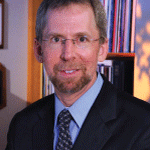
Eric D. Green, M.D., Ph.D.,National Human Genome Research Institute, National Institutes of Health. Bethesda, Maryland, USA
Eric D. Green, M.D., Ph.D. is the Director of the National Human Genome Research Institute (NHGRI) at the National Institutes of Health (NIH), a position he has held since late 2009. NHGRI is the largest organization in the world solely dedicated to genomics research. Previously, he served as the NHGRI Scientific Director (2002-2009), Chief of the NHGRI Genome Technology Branch (1996-2009), and Director of the NIH Intramural Sequencing Center (1997-2009).
While directing an independent research program for almost two decades, Dr. Green was at the forefront of efforts to map, sequence, and understand eukaryotic genomes, including significant, start-to-finish involvement in the Human Genome Project.
Now, as Director of NHGRI, Dr. Green is responsible for providing overall leadership of the Institute’s research portfolio and other initiatives; this requires significant coordination with other NIH components and funding agencies. Most recently, Dr. Green led NHGRI to the completion of a strategic planning process that yielded a new vision for the future of genomics research, entitled Charting a course for genomic medicine from base pairs to bedside (Nature 470:204-213, 2011).

Marilyn A. Huestis, Chief, Chemistry & Drug Metabolism, Intramural Research Program, NIDA, NIH, Biomedical Research Center, USA
Professor Dr. Dr. (h.c.) Marilyn A. Huestis is a tenured senior investigator and Chief, Chemistry and Drug Metabolism Section, IRP, National Institute on Drug Abuse, National Institutes of Health and Adjunct Professor in the Department of Epidemiology and Preventive Medicine, School of Medicine, University of Maryland. She thoroughly enjoys mentoring doctoral students in Toxicology, has to date directly overseen the research of 11 distinguished new toxicologists, and currently has 7 students pursuing their dissertation research. Her research program seeks to discover mechanisms of action of cannabinoid agonists and antagonists, effects of in utero drug exposure, and the neurobiology and pharmacokinetics of designer drugs, the emerging face of drug abuse. Professor Huestis is focused on new medication targets for cannabis dependence, including oral tetrahydrocannabinol (THC) and Sativex, a 1:1 ratio of tetrahydrocannabinol and cannabidiol. She is interested in the disposition of drugs and metabolites in a wide variety of biological fluids and tissues following controlled drug administration; data that provide a scientific database for interpreting drug concentrations in alternative matrices. Professor Huestis was the first to evaluate the effects of the CB-1 cannabinoid receptor antagonist rimonabant in cannabis users. She directed the first clinical Cooperative Research And Development Agreement (CRADA) for the Intramural Research Program that serves as a model for future research endeavors. Recently, Professor Huestis and colleagues documented that CB1-cannabinoid receptors are significantly down regulated in specific brain regions in chronic daily cannabis smokers, but these receptors significantly increased with sustained cannabis abstinence. Residual active cannabinoids could be quantified for up to 24 days in chronic smokers during sustained abstinence and, furthermore, psychomotor impairment was documented in these same subjects for at least 21 days. An area of special interest for Professor Huestis is investigating the effects of in utero drug exposure on child development and whether concentrations of drugs and/or metabolites in meconium predict adverse outcomes of in utero drug exposure. She has published 312 peer-reviewed manuscripts and book chapters and over 335 abstracts were presented at national and international meetings. Professor Huestis received a bachelor’s degree in biochemistry from Mount Holyoke College (cum laude), a master’s degree in clinical chemistry from the University of New Mexico (with honors), and a doctoral degree in toxicology from the University of Maryland (with honors). Professor Huestis received a Doctor Honoris Causa from the Faculty of Medicine, University of Helsinki in Finland in 2010. Other important awards including The International Association of Forensic Toxicologists (TIAFT) Alan Curry Award in 2010, the American Association for Clinical Chemistry Outstanding Contributions in a Selected Area of Research Award in 2008, the International Association of Therapeutic Drug Monitoring and Clinical Toxicology (IATDMCT) Irving Sunshine Award in 2007, the American Academy of Forensic Sciences’ Rolla N. Harger Award in 2005, and the Irving Sunshine Award for Outstanding Research in Forensic Toxicology in 1992. The journal Clinical Chemistry recently featured her as an “Inspiring Mind”. She currently serves on the World Anti-doping Agency’s Prohibited List Committee, White House Forensic Science Subcommittees on Education, Ethics, and Terminology and Research, Development, Technology and Evaluation Interagency Working Groups (IWGs), the Scientific Working Group on Toxicology (SWG-TOX), Transportation Research Board Committee on Alcohol and Other Drugs, and the National Safety Council’s Alcohol, Drugs and Impairment Division Executive Board. Professor Huestis is past president of the Society of Forensic Toxicologists, past Chair of the Toxicology Section of the American Academy of Forensic Sciences, and the first woman president of The International Association of Forensic Toxicologists.
Paul Jannetto, Pathology and Laboratory Medicine, Mayo Clinic, Rochester, USA
Paul J. Jannetto, Ph.D., DABCC, FACB, M.T.(ASCP), is a Senior Associate Consultant at the Mayo Clinic (Rochester, MN) where he serves as the Co-Director for both the Toxicology and Drug Monitoring Laboratory and Metals Laboratory. Previously, he was an Associate Professor of Pathology at the Medical College of Wisconsin (Milwaukee, WI) where he functioned as the Director of Clinical Chemistry/Toxicology, Director of the Rapid Response Lab, Director of Community Memorial Medical Commons Lab, and Co-director of the Hemeoncology Lab at Dynacare Laboratories (Milwaukee, WI). He earned his BS in Clinical Laboratory Science from the University of Wisconsin-Milwaukee and worked five years as a Medical Technologist for Medical Science Laboratories before entering graduate school. He then earned a Ph.D. in Pharmacology and Toxicology at the Medical College of Wisconsin. He is board-certified by the American Board of Clinical Chemistry and American Society for Clinical Pathology. His clinical and scientific interests are centered on Clinical Chemistry/Toxicology, Forensic Toxicology, Therapeutic Drug Management, Laboratory Management, and Pharmacogenomics.
Dr. Jannetto has been actively involved in the American Association for Clinical Chemistry (AACC) where he has participated in the TDM/Toxicology, Management Sciences, Personalized Medicine, Critical and POCT, and Molecular Pathology divisions. In the past, he has served on the local level as the Chair of the Chicago Section of AACC, and the national level as a member of the Nominating Committee and Chair of the House of Delegates. In 2002, he received the Lemeul J. Bowie Young Investigator award from the Chicago Section of AACC and a Van Slyke Society grant for his research on the use of Pharmacogenomics for Pain Management. In 2008, he received the Young Investigator Award from the TDM and Toxicology division of AACC. In 2012, he received the Society for Young Clinical Laboratorians Service Award. Dr. Jannetto is also a member of the International Association of Therapeutic Drug Monitoring and Clinical Toxicology and was the President of the Midwest Association for Toxicology and Therapeutic Drug Monitoring.
Dr. Jannetto is the author/co-author of numerous articles, 13 book chapters, and over 40 abstracts. In addition, he has presented several talks, workshops, roundtables, and posters on a diverse array of topics from Laboratory Automation to Pain Management at local, regional, and national meetings. Dr. Jannetto is married and has two daughters (4 and 10 years old) who are the pride and joy of his life. He enjoys biking, woodworking, and playing soccer with his daughters.
Markus Joerger MD-PhD, Medical Oncology & Clinical Pharmacology,Department of Internal Medicine and Clinical Research Facility.Cantonal Hospital. St.Gallen – Switzerland
Markus Joerger is a medical oncologist and clinical pharmacologist, with a focus on early development of anticancer drugs, anticancer drug pharmacokinetics and pharmacogenetics, and therapeutic drug monitoring in oncology. After his graduation from medical school in 1996, he underwent his medical training at the University Hospital Zurich and Cantonal Hospital St.Gallen. From 2003 to 2007, he did his PhD and clinical pharmacology training at the Netherlands Cancer Institute in the group of Professor Jan H.M. Schellens. In December 2007, MARKUS JOERGER published his PhD-thesis on “Pharmacokinetic and pharmacogenetic profiling in solid cancer patients”. Since then, he published over 50 articles, many of them dealing with the pharmacokinetics and pharmacodynamics of the taxanes, 5-fluorouracil or high-dose methotrexate. In his research, drug modeling is often used, to explain interindividual variability of anticancer drug pharmacokinetics, and calculate dosing algorithms implementing specific patient characteristics and/or therapeutic drug monitoring.
Mark Joerger works in the Division of Medical Oncology of the Cantonal Hospital St.Gallen, the largest oncology institute in Switzerland. St.Gallen is situated in Eastern Switzerland, 80 km from Zurich. St.Gallen is well known for its two-yearly Breast Cancer Conference. MARKUS JOERGER is married, and has a 4-year of son. His present research projects are mainly collaborative studies with coworkers at the Universities of Basel, Bern, Bonn (Germany), the Netherlands Cancer Institute and Pittsburgh University among others.

Svein I. Johannessen, Senior Researcher, The National Center for Epilepsy and Department of Pharmacology. Oslo University Hospital, Norway.
Svein I. Johannessen, PhD has been Head of the Department of Clinical Chemistry and Clinical Pharmacology at the National Center for Epilepsy in Sandvika, Norway since 1968 – ), in addition, Director of Research from 1982, and Senior Researcher from 2007 – ). In 2010 the Center was reorganized as part of the Oslo University Hospital, and the laboratory service became an integrated part of the Section for Clinical Pharmacology at the Department of Pharmacology, Oslo University Hospital.
The laboratory has a nation-wide service for TDM of most antiepileptic drugs and has been involved in establishment of national and international quality control schemes for antiepileptic drugs and has contributed to the implementation of TDM as an important tool for an optimal treatment of the individual patient with epilepsy.
Dr. Johannessen was appointed “Ambassador for Epilepsy” of the International League Against Epilepsy and International Bureau for Epilepsy in 1982 and became an Honorary member of the All Russian Society of Neurologists in 2008. He was President of the Norwegian Epilepsy Society, of the International League Against Epilepsy (1987 – 1999), honorary member since 1999 and founding member of the European Epilepsy Academy (EUREPA). Dr. Johannessen has served as member of several commissions of the International League Against Epilepsy since 1982, including the Commission on Antiepileptic Drugs, the Commission on Education, and the Commission on European Affairs. He has been member of the Organizing Committee and Scientific Advisory Committee of numerous international and European congresses and courses on epilepsy. He has served as a member of the Editorial Board of several journals, including Therapeutic Drug Monitoring, Epilepsy Research, Epilepsia, and the European Neurological Journal. Dr. Johannessen has published extensively in the field of epileptology and clinical pharmacology of antiepileptic drugs.

Kamisha Johnson-Davis, Assistant Professor, University of Utah, ARUP Laboratories, USA
Dr. Johnson-Davis is an Assistant Professor at the University of Utah in the Department of Pathology and Medical Director for Clinical Toxicology and immunosuppressant testing at ARUP Laboratories. She received her B.S. degree in Biochemistry from the University of California, Riverside and her Ph.D. in Pharmacology from the University of Utah. She completed her postdoctoral fellowship in clinical chemistry at the University of Utah, Department of Pathology, and was a postdoctoral research associate at the Center of Human Toxicology at the University of Utah. Dr. Johnson-Davis is board certified in Clinical Chemistry and is a Diplomate of the American Board of Clinical Chemistry and a Fellow of the National Association of Clinical Biochemistry.
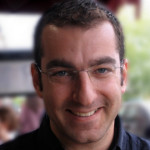
Dan Kaufmann, Anticonvulsant Drug Development (ADD) Program Pharmacology and Toxicology Department, University of Utah, USA
Dan Kaufmann, Ph.D. is currently a post-doctoral fellow in the Anticonvulsant Drug Development (ADD) program where he is characterizing a novel valproic acid amide analogue, sec-butyl propylacetamide (SPD). Dan is characterizing SPD for the treatment of epilepsy, neuropathic and inflammatory pain, and migraine disorders, and evaluating its mechanism of action. He has previously engaged in a structure-activity relationship (SAR) study aimed at identifying novel second generation valproic acid analogues that have potential to become future anticonvulsants and pain relieving drugs with better pharmacokinetic and side effects profile. His research was multidisciplinary starting from chemical synthesis of the compounds, evaluating their anticonvulsant and antinociceptive activity using behavioral animal models and determining the pharmacokinetic parameters of the active compounds while developing bioanalytical assays using a GC/MS apparatus. Dan has previously developed thirty four novel analogues of valproic acid which led to the discovery of several lead compounds. One of them, SPD, shows remarkable activity as an anticonvulsant and an antinociceptive, as well as potential as an anti-migraine compound. Dan is currently attempting to gain insight into SPD’s mechanism of action using electrophysiology techniques such as field potentials recordings and patch clamping.
Magda Korecka, Department of Pathology & Laboratory Medicine, University of Pennsylvania, USA
Dr. Magdalena A. Korecka is a Senior Research Investigator at the Perelman School of Medicine at the University of Pennsylvania in Philadelphia, Pennsylvania. She received her Ph.D. in analytical medicine from the Jagiellonian University School of Medicine, Krakow, Poland on separation and quantification of transcobalamins in human plasma. Dr. Korecka has joined the Biomarker Research Laboratory at the University of Pennsylvania in 1996 to study pharmacokinetics and pharmacodynamics of immunosuppressants and anti-cancer drugs in biological fluids by liquid chromatography with mass spectrometric detection. Her current research involves identification of biological markers for early detection and progression of Alzheimer’s disease by LC-MS-MS. Dr. Korecka is an expert in mass spectrometry, in particular, the development of mass spectrometric methods and their validation. She is an author of more than 35 articles and books chapters.
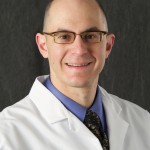
Matthew Krasowski, University of Iowa, USA
Matthew D. Krasowski, MD, PhD is a pathologist and Clinical Associate Professor of Pathology at the University of Iowa Carver College of Medicine. He currently serves as the Vice-Chair of Clinical Affairs and the medical director of the Clinical Chemistry and Point of Service laboratories in the Department of Pathology at University of Iowa Hospitals and Clinics. Prior to moving to Iowa in July 2009, he spent four years at the University of Pittsburgh Medical Center as a Clinical Assistant Professor and Medical Director of Toxicology and Therapeutic Drug Monitoring. He has particular interest in drug of abuse, toxicology, and vitamin D testing, and has published articles on a range of toxicology/therapeutic drug monitoring topics. Dr. Krasowski received the 2011 Young Investigator Award in the American Association for Clinical Chemistry (AACC) Division of Toxicology and Therapeutic Drug Monitoring.

Robert Kronstrand, National Board of Forensic Medicine, Department of Forensic Genetics and Forensic Toxicology, Linköping, Sweden
Robert Kronstrand is currently associate professor in forensic toxicology at Linköping University and working at the National Board of Forensic Medicine in Sweden. He received his BS degree in analytical chemistry in 1989, and his PhD in human toxicology in 2001, both from the University of Linköping, Sweden. In 1990, he joined the National Board of Forensic Medicine, Department of Forensic Toxicology located in Linköping, Sweden. Dr Kronstrand has over 20 years of experience in the fields of postmortem toxicology, DUID, DFSA and drug testing in various matrices. His research has covered a wide range of topics over the years, including opiate toxicity and analytical toxicology with focus on the incorporation of drugs into hair. Over the last 15 years, LC-MS-MS as a technique has been another focus of his research. Currently, he supervises four PhD students in forensic toxicology and forensic medicine.

Ilo Leppik, Professor, Experimental and Clinical Pharmacology, College of Pharmacy, University of Minnesota, USA
Dr. Ilo E. Leppik is the Director of research of MINCEP Epilepsy Care in Minneapolis and Professor of Pharmacy and Neurology at the University of Minnesota. Dr. Leppik is the past President of the American Epilepsy Society, past Chairman of the American Epilepsy Society Guidelines Task Force, and the past president of the Central Society for Neurological Research. He also was on the Board of Directors of the Epilepsy Foundation of America and chaired its professional advisory board.
He maintains an active outpatient practice at MINCEP Epilepsy Care and is on the active staffs of Abbott Northwestern Hospital, University of Minnesota-Fairview Hospital, Gillette Children’s Hospital and Minneapolis Children’s Hospital. A major current effort is working with nursing home medical directors to improve use of drugs in nursing homes.
Major honors include The Penfield Prize from the Montreal Neurological Institute, the 2007 William G. Lennox Award from the American Epilepsy Society, and the 2007 the Ludvig Puusepp Achievement Award, Estonian Neurological Society.
From 1986 to 2006, Dr. Leppik was a founding and managing editor of an international journal, Epilepsy Research.
Currently, he is principal investigator of an NIH funded grant for using naturally occurring canine status epilepticus as a translational platform to develop new drugs and is the principal investigator of a multicenter study of epilepsy in the elderly. Dr. Leppik’s research is widely published with over 210 peer reviewed articles and 240 abstracts. He has coauthored numerous books and authored Contemporary Diagnosis and Management of the Patient With Epilepsy which has 650,000 copies in print and Epilepsy: A Guide to Balance Your Life, sponsored by the American Academy of Neurology as part of their educational series for patients and families.
Kara Lynch, Assistant Professor, Associate Chief of Chemistry and Toxicology, University of California San Francisco, San Francisco General Hospital, San Francisco, USA
Dr. Kara Lynch is an Assistant Professor of Laboratory Medicine at the University of California San Francisco and the Associate Chief of the Clinical Chemistry and Toxicology Laboratory at San Francisco General Hospital and Trauma Center. She received her PhD in Biochemistry from the University of Wisconsin and did a post-doctoral fellowship in Clinical Chemistry in the COMACC approved training program at UCSF. Her primary area of research is in Clinical Toxicology. Her laboratory conducts studies aimed at identifying and quantifying toxins, drugs of abuse and adulterants in biological specimens using mass spectrometry and correlating the findings with clinical pathologies.

Stephanie Marin, R&D Investigator at ARUP Laboratories, USA
Stephanie Marin is as Investigator at the ARUP Institute for Clinical and Experimental Pathology in Salt Lake City, UT. Her current research applies the use the high resolution time-of-flight mass spectrometry (TOF) to detection of drugs and metabolites. She has developed TOF assays for detection of drug analytes in urine and serum for pain management testing. She has also developed immunoassay and TOF for analysis of drugs to detect in utero drug exposure using meconium and umbilical cord tissue. Dr Marin also has expertise in tandem mass spectrometry, gas chromatography-mass spectrometry, and sample preparation techniques including sold phase extraction and supported liquid extraction. She has a PhD in chemistry from Arizona State University and has also worked in an EPA certified analytical laboratory and in the analytical services group at Rohm and Haas (now Dow Chemical).

Pierre Marquet, Pharmacology and Toxicology, University Hospital Limoges, France
Pierre Marquet has been a Doctor of Medicine since 1986 and obtained a master in statistics and epidemiology followed by a PhD in physiology in 1992. After several years as an assistant professor at Limoges University Hospital, he became an associate professor of pharmacology in 1998 and since 2001, has been a full professor at the Faculty of Medicine of Limoges, France. He was presented with the Young Scientist Award of the French Society of Analytical Toxicology in 1995, the IATDMCT Young Investigator Award in 2001 and C.E. Pippenger Award in 2009. At the IATDMCT, he chaired the Standard of Laboratory Practice Committee from 2001-2007, was elected Secretary in 2007 and then President-elect in 2009.
Pierre Marquet is currently:
- President of IATDMCT (2011-2013)
- Director of the INSERM U850 research unit called “Pharmacology of immunosuppressive drugs in transplantation” (INSERM is the French Institute of Medical and Health Research)
- Head of the “Pharmacology, Toxicology and Pharmacovigilance” Department at the University Hospital of Limoges
- Vice-President of the board of Directors of University Hospital of Limoges, in charge of research
- Member of the council of the French Society of Pharmacology and Therapeutics (SFPT)
- Coordinator of the “drugs and pharmacology” working group of the French-speaking Society of Transplantation (SFT)
- Member of several scientific committees
Pierre Marquet conducts translational research on treatment personalization, mainly concerning immunosuppressants (IS) in organ transplantation, which covers: metabolic, pharmacogenetic and pharmacodynamic studies of the IS; investigation of early biomarkers of graft injuries; mechanisms of immunosuppressive drug nephrotoxicity; epidemiological studies and clinical trials in transplant patients; and application to routine treatment personalization in transplant recipients.
He has published over 160 papers in peer-reviewed, international journals.

Deborah Marriott, Microbiology and Infectious Diseases, St. Vincent’s Hospital, Sydney, Australia
Professor Debbie Marriott is a senior specialist at St. Vincent’s hospital, Sydney, an adjunct professor at the University of Technology, Sydney, and a conjoint Associate Professor at the University of New South Wales. St. Vincent’s Hospital Sydney is a unique institution as it has the largest HIV medicine unit in Australia, a lung and heart transplant unit and adult bone marrow transplantation.
Prof. Marriott’s clinical and research interest in infectious diseases began soon after she diagnosed the first patient with HIV infection in Australia in 1983. She subsequently published on papers on the epidemiology and treatment of cryptococcal infection in normal, immuno-compromised and HIV-infected hosts and she remains interested and involved in research involving the treatment and epidemiology of fungal infections. Prof. Marriott is recognised as an expert in infections in immuno-compromised hosts and therapeutic drug monitoring of antimicrobial agents and has been an invited speaker at a number of international and national meetings. She is a founding member and past president of the Australasian Society for HIV Medicine and past state representative for the Royal Australasian College of Physicians. She is also a clinical representative on the NSW State TB Advisory Committee, an examiner for the Royal Australasian College of Physicians and she serves on a number of hospital committees. Prof. Marriott has recently been elected President of Transplant Infectious Diseases, and is a scientific committee member on ISHLT and IATDMCT.

Jennifer Martin, Departments of Internal Medicine and Chemical Pathology, Pathology Queensland, Royal Brisbane and Women’s Hospital; Diamantina Institute, The University of Queensland, Australia
Associate Professor Jennifer Martin is Head of the PA-Southside Clinical School and a physician at the Princess Alexandra Hospital. She has been involved in teaching, training and curriculum development for medical students and physicians for 20 years. Her current research portfolio includes a multi-disciplinary and multi-institution medicines research group in the Translational Research Institute. This links basic pharmacology, drug design and clinical trial development with patient specific factors such as body size (particularly obesity), pharmacogenetic factors and disease specific profiles (using genetics and imaging) to target and individualise drug dosing. Dosing in obesity has become a focus of her clinical interests as large numbers of patients requiring pharmacotherapy are currently overweight or obese. She has also skills and experience in health economics which has been used to guide pharmacology research and practice, and in particular choosing the right dose for the correct pharmacokinetic profile.
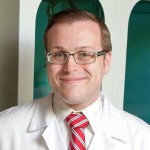
Mark Marzinke, Johns Hopkins Medical Institutions, USA
Mark Marzinke, PhD, DABCC earned a Ph.D. in Biochemistry from the University of Wisconsin-Madison and subsequently completed a clinical chemistry fellowship at The Johns Hopkins University in 2012. Dr. Marzinke is currently an Instructor in the Departments of Pathology and Medicine at the Johns Hopkins University School of Medicine (JHUSOM). He serves as the Director of Preanalytics and General Chemistry in the Core Laboratory of the Johns Hopkins Hospital, where he focuses on workflow analysis and test utilization. Additionally, he is the Associate Director of the Clinical Pharmacology Analytical Lab (CPAL) at the JHUSOM, where he focuses on the development and validation of quantitative mass spectrometric methods to determine the concentrations of anti-infective agents in rare matrices to support large clinical trials. His research interests include the development, validation and implementation of assays focused on personalized medicine, particularly in antiretroviral therapies and including therapeutic drug monitoring, as well as pharmacogenetic testing. Dr. Marzinke is board certified by the American Board of Clinical Chemistry.
Satohiro Masuda, Associate Professor/Vice Director, Department of Pharmacy, Kyoto University Hospital, Japan
Satohiro Masuda, Ph.D. is an Associate Professor, Department of Clinical Pharmacology and Therapeutics, and Vice Director, Department of Pharmacy, Kyoto University Hospital, Japan. After obtaining Ph.D. at Kyoto University in 1998, he cloned several solute transporters such as rat kidney-specific Na+/glucose cotransporter NaGLT1, human kidney-specific Multidrug and Toxin Extrusion MATE2-K, rat Mate1, rat and human riboflavin transporters RFVTs. Recently, he mainly works in the “pharmacogenomics for adequate dosage regimen of immunosuppressants in liver transplant patients” and “discovery of non-invasive biomarkers detecting and preventing the drug-induced nephrotoxicity”.

John T. McDevitt, Ph.D.
University and is a pioneer in the development of “programmable bio-nano-chip” technologies. Since joining Rice in 2009, McDevitt’s group has focused primarily on development of portable diagnostic devices that have potential to replace high-cost, lab-based, time-consuming diagnostic tests for both resource scarce settings where traditional laboratory measurements are not practical as well as for developed countries that are seeking to reduce health care costs. McDevitt’s recent research has been supported by major programs funded by the National Institute of Dental and Craniofacial Research (NIDCR) division of the National Institutes of Health (NIH), the Bill and Melinda Gates Foundation, Cancer Prevention Research Institute of Texas (CPRIT), the National Aeronautics and Space Administration (NASA) and the United Kingdom’s Home Office Scientific Development Branch. McDevitt and his team have written more than 170 peer-reviewed scientific manuscripts and have contributed to more than 150 patents and patent applications.
This work was recognized with the “Best of What’s New Award” in the Medical Device Category for 2008 by Popular Science as well as for the “Best Scientific Advances Award” in 1998 by the Science Coalition. Dr. McDevitt’s individual honors include the Presidential Young Investigator Award, the 2010 California Polytechnic Distinguished Alumni Award and the Exxon Education Award. McDevitt now serves as the Principal Investigator for 6 major clinical trials and 2 clinical pilot studies all involving the programmable bio-nano-chip. Through these clinical efforts mini-sensor ensembles are being developed for major diseases in the areas of cardiac heart disease, trauma, drugs of abuse, oral cancer, ovarian cancer and prostate cancer. With CPRIT funding McDevitt has recently established the “Texas Cancer Diagnostics Pipeline” and serves at the Director for the newly formed “Early Disease Detection Gulf Coast Consortium Cluster” thereby creating a network of over 100 clinical researchers devoted to next generation of affordable diagnostics. McDevitt serves as the Scientific Founder for several companies in areas related to medical microdevice technologies.
Denise McKeown, Forensic Toxicologist, Forensic Medicine and Science, University of Glasgow. Glasgow, UK
Since September 2012, Denise has worked as a Forensic Toxicologist at Forensic Medicine and Science (FMS), University of Glasgow. Prior to this Denise worked for just under 10 years at Analytical Services International, St George’s – University of London. In both positions Denise pursues her interest in bioanalytics. Denise specialises in the development and validation of hyphenated chromatographic and mass-spectrometric methods for the qualitative and quantitative detection of drugs, their metabolites and endogenous compounds for application in the areas of forensic and clinical toxicology. Denise has contributed to several peer-reviewed publications and book chapters, and has presented at national and international meetings. Denise is an active member of International Association of Therapeutic Drug Monitoring and Clinical Toxicology (IATDMCT); Chair of the Young Scientist and Communications Committee’s, and Associate Editor of the Compass (Quarterly Newsletter). Denise is also a member of the Royal Society of Chemistry (RSC), London Toxicology Group (LTG) and The International Association of Forensic Toxicologists (TIAFT).

Andrew J. McLachlan, Faculty of Pharmacy and Centre for Education and Research on Ageing, University of Sydney and Concord Hospital
Andrew McLachlan is a pharmacist and researcher with experience in clinical and experimental pharmacology and research into the Quality Use of Medicines. He is currently the Professor of Pharmacy (Aged Care) in the Faculty of Pharmacy at the University of Sydney based at Concord Hospital and the Centre for Education and Research on Ageing, Sydney, Australia. His main research interests centre on understanding the causes and consequences of variability in response to medicines and how this informs their safe and effective use. The focus of his research has been in special patient populations such as older people, very young and critically ill. Andrew has authored more 160 research papers in peer reviewed journals in the fields of clinical and experimental pharmacokinetics and pharmacodynamics, geriatric clinical pharmacology and pharmacoepidemiology. He serves as an executive editor for the British Journal of Clinical Pharmacology and on expert committees for the Australian Government related to medicines and antidoping.

Matthew McMullin, Toxicology, National Medical Services, USA
Mr. McMullin is a Director at NMS Labs and is responsible for research and development of laboratory testing and technical support services and a practicing toxicologist. He also direct the project management office at NMS Labs. He is a Diplomate of the American Board of Forensic Toxicology and certified by the National Registry in Clinical Chemistry as a Toxicological Chemist. Mr. McMullin earned a Masters of Chemistry Degree from St. Joseph’s University and is a graduate of DeSales University.
Markus Meyer, Institute of Experimental and Clinical Pharmacology and Toxicology, Saarland University, Homburg/Saar, Germany
Dr. Meyer received his PhD from the Saarland University (Prof. Hans H. Maurer, Department of Experimental and Clinical Toxicology, Homburg, Germany), where he worked on the role of cytochrome P450s and catechol-O-methyltransferase in the metabolism of methylenedioxy designer drug enantiomers. Currently, he is working in the same department as a post-doc and deputy head of department. His main research interests are metabolism of drugs of abuse and poisons and their inhibition potency on metabolizing enzyme systems as well as analytical toxicology. Dr. Meyer is actively involved in research in these areas and has written and contributed to several peer-reviewed publications, and invited presents at national and international conferences. He is a member of The International Association of Forensic Toxicologists (TIAFT), the German Pharmaceutical Society (DPhG), the Society of Toxicological and Forensic Chemistry (GTFCh), and of the International Association of Therapeutic Drug Monitoring & Clinical Toxicology (IATDMCT).
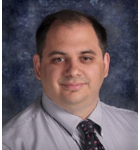
Michael Milone, Assistant Professor, Pathology and Lab Med and Associate Director, Toxicology Lab, University of Pennsylvania Health System, USA
Michael Milone is an Assistant Professor of Pathology and Laboratory Medicine at the Hospital of the University of Pennsylvania and the Perelman School of Medicine at the University of Pennsylvania. He is a trained clinical pathologist, blood banker and laboratory toxicologist, and he currently serves as the Associate Director of the Toxicology and Therapeutic Drug Monitoring Laboratory at the Hospital of the University of Pennsylvania. He earned his MD and PhD degrees in 1999 from the University of Medicine and Dentistry of New Jersey. He is a co-inventor of an adoptive T cell immunotherapy approach to treatment of B-cell malignancy using genetically-modified T cells that has shown promising results in phase I clinical trials in adult and pediatric patients with leukemia. Dr. Milone’s research laboratory continues to focus upon adoptive T cell immunotherapy of cancer using CAR-modified T cells alongside efforts to develop improved T cell culture systems.
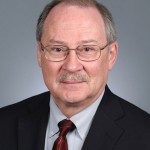
Thomas P. Moyer, Mayo Clinic, USA
Thomas P Moyer matriculated from the University of Minnesota with a Bachelor of Arts degree in Chemistry. Following receipt of his undergraduate degree he spent three years in the United State Army Infantry (1969-1972). Upon completing his military service, Moyer earned the PhD degree in Biochemistry from North Dakota State University. He trained at Mayo Clinic as a Fellow in Clinical Chemistry, and joined the medical staff of Mayo Clinic in Rochester, Minnesota as a Consultant in the Department of Laboratory Medicine & Pathology. Dr. Moyer is certified by the American Board of Clinical Chemistry. He provides laboratory medicine consultation to Mayo Clinic physicians and physicians in practice around the world serviced by Mayo Medical Laboratories.
At Mayo Clinic, Dr. Moyer held many leadership positions. He created the Drug Laboratory and served as its director, was Division Chair of Clinical Biochemistry & Immunology, Vice Chair of the Department of Laboratory Medicine & Pathology, and Senior Vice President of Mayo Medical Laboratories. Dr. Moyer holds a joint academic appointment in the Department of Molecular Pharmacology and Experimental Therapeutics. He has published >110 peer reviewed papers, >125 abstracts, 30 book chapters, and two books on therapeutic drug monitoring and metal-related diseases.
Dr. Moyer was active in professional societies, especially the American Association for Clinical Chemistry (AACC). He chaired the Therapeutic Drug Monitoring Laboratory Improvement Program, Midwest Section, Oak Ridge Conference, Meetings Management Group, Program Coordinating Commission, Commission on Education and Scientific Affairs, and the 2005 Annual Meeting. He was an elected to the Board of Directors (twice), and was President of AACC in 2004. Dr. Moyer was given the AACC Lifetime Achievement Award in 2012. He also represented AACC to the International Federation of Clinical Chemistry, serving as a member of the Scientific Division, and a member of the Congress and Conference Division.
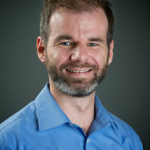
Michael Neely, Associate Professor of Pediatrics, Division of Pediatric Infectious Diseases, University of Southern California, USA
Dr. Neely is an Associate Professor of Pediatrics and a Clinical Scholar at the University of Southern California (USC) in Los Angeles, CA. His research and clinical interests are in pediatric clinical pharmacometrics, including population pharmacokinetic and pharmacodynamic modeling, pharmacogenomics, simulation, and most importantly, use of models to optimize therapy for individual patients. Although Dr. Neely primarily works in the therapeutic area of infectious diseases on anti-infective compounds, he has experience with other therapeutic areas. He is currently the Director of the Laboratory of Applied Pharmacokinetics at the Children’s Hospital Los Angeles, in the USC Keck School of Medicine, working with multidisciplinary faculty collaborators in the Departments of Pediatrics, Medicine, and Preventive Medicine, as well as in the USC School of Pharmacy.
He has a Master’s of Science Degree in Clinical and Biomedical Investigations at USC, with a focus on applied Bayesian approaches to clinical trial design and pharmacokinetic modeling, is a Fellow in the American College of Clinical Pharmacology, a member of the Society for Pediatric Research, and he serves on the United States Food and Drug Administration Anti-infective Drug Advisory Committee. He is currently the principle investigator on two NIH-sponsored clinical projects involving the developmental aspects of voriconazole pharmacokinetics, as well as creating software tools to optimally dose voriconazole, vancomycin, and other therapeutic drugs. He is co-founder and part owner of Applied Pharmacometrics, Inc., maker of the BestDose software for maximally precise, Bayesian adaptive control of individual patient drug therapy. He has mentored numerous visiting scholars, has been an invited speaker worldwide, and is the author of nearly 60 peer-reviewed papers.
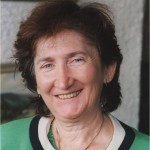
Manuela Neuman, In Vitro Drug Safety & Biotechnology, University of Toronto, Canada
Dr. Neuman is Assistant Professor of Pharmacology and Toxicology, and Associated Global Health at Faculty of Medicine, The University of Toronto. She is the founder and CEO In Vitro Drug Safety and Biotechnology, Toronto. Dr. Neuman holds a Ph.D., in Physiology and Pharmacology from Faculty of Medicine Tel-Aviv University, Israel. Dr.Neuman also completed her post-doctoral fellowship in Clinical Chemistry, Hepatology, Immunology, Gastroenterology and Virology, as well as a Post Doctoral Fellowship in Gastroenterology and Pharmacology at the University of Toronto, Toronto, Canada.
Dr. Neuman has published extensively in the areas of therapeutic and drug of (use and misuse) monitoring, new biologic and their monitoring in clinical practice, pharmacogenetic and immunopharmacogentic clinical applications, drug-induced liver and skin adverse reactions, liver immunology, hepatocellular carcinoma and inflammatory bowel disease. Since 1992, she is a member of the IATDMCT actively participating at all the meetings. Dr. Neuman has served the University of Toronto in many capacities including Head of the In Vitro Biotechnology Platform. Clinical chemists, academic researchers, as well as, pharmaceutical industries’ leaders are aware of the need for greater competence in the molecular diagnosis of diseases and possible monitoring of treatments by using the specific molecular diagnostic biomarkers. Dr. Neuman has been committed to developing innovative diagnostic products that address prevention, diagnosis and treatment of diseases, thus enhancing people’s health and quality of life. Dr. Neuman has patented efficient quantitative kit to diagnose and monitor the severity of diseases that affect the central nervous system and the liver.
Dr. Neuman’s research activities include the role of immunopharmacology in evaluation of safety profiles of different drugs. Moreover alternative options for therapeutic class are provided. International collaborators embrace her interdisciplinary research. She has a renowned record in promoting of hepatic safety of agents in patients with underlying liver disease in different scientific national and international fora.
Another important subject of Dr. Neuman’s research is efficacy of therapies, expression of pathogen recognition receptors and signaling pathways involved in liver injury. Other subjects include the role of immune system in viral hepatitis, interactions of cytokines and chemokines receptors as a mechanism regulating inflammation and steatosis in the liver, the role of immunity as well as fibrogenesis. Dr. Neuman uses therapeutic and drug monitoring techniques as key to personalized medicine that allows earlier detection of diseases.
Dr. Neuman is an organizer of international symposia on the basic and translational research. In vitro modeling technology allows accurate decision making at critical junctures in drug development. Moreover, her translational research skill permits developing a panel of assays to assess potential clinical toxicity.

Professor Ross Norris PhD, MAppSc, BAppSc. Australian centre for Paediatric Pharmacokinetics, Mater Pharmacy Services, Australia
Professor Ross Norris obtained his Bachelor of Applied Science (applied chemistry) in 1979 and Master of Applied Science in 1985 from the Queensland University of Technology and his PhD in medicine from the University of Queensland in 2002. He is an analytical chemist specialising in drug analysis and pharmacokinetics since 1979, mostly in the area of therapeutic drug monitoring (TDM). A/Prof Norris was the Chief Scientist in the TDM Laboratory in the Department of Clinical Pharmacology, Princess Alexandra Hospital in Brisbane from 1985 to 1996 and currently holds the position of Research Consultant, Australian Centre for Paediatric Pharmacokinetics, Mater Pathology Services, formerly also holding the joint position of Senior Scientist, Therapeutic Advisory Service, Mater Health Services, Brisbane until 2010.
He also holds adjunct appointments as Associate Professor, Griffith University, School of Pharmacy and Senior Lecturer, University of Queensland, School of Pharmacy. His current passion is the application of pharmacokinetic, pharmacodynamic, pharmacogenetic and pharmacoeconomic principles to dose individualisation (TDM), to improve patient outcomes. He chairs the Special Drugs Working Party, Royal College of Pathologists of Australasia, Quality Assurance Program and the Standards of Practice Committee, International Association of TDM and Clinical Toxicology. He also chairs a local Clinical Pharmacology Research Group meeting at Mater Health Services in Brisbane, his home town. He has published more than 50 papers, book chapters and letters to editors primarily in the area of TDM.
Michael Oellerich, Lower Saxony Distinguished Professor, Department of Clinical Chemistry, George-August University Göttingen, Germany
Michael Oellerich (MD, Hon MD) is a Chemical Pathologist (Facharzt für Laboratoriumsmedizin) and a Lower Saxony Distinguished Professor of Clinical Chemistry at the Medical Faculty (UMG) of the George-August-University Göttingen, Germany. He was chairman of the Department of Clincal Chemistry/Central Laboratory at UMG from 1991 to 2012. He received the honorary Fellowship of the Faculty of Pathology of the Royal College of Physicians of Ireland (FFPath RCPI), the Fellowship of the Royal College of Pathologists (FRCPath) in 2006, the Fellowship of the National Academy of Clinical Biochemistry (FACB) of the American Association for Clinical Chemistry in 2012, as well as the honorary membership of the Romanian Society of Laboratory Medicine in 2007. In 2012, he was awarded a Lower Saxony Professorship to support his research in the fields of novel biomarkers in transplantation and proteomics.
From 1996 to 1998, he served as Dean of the Faculty of Medicine and as the deputy of the chief executive for research and teaching on the executive board for the Medical Center and Faculty of Medicine from 1999 to 2004. He was president of the International Association of Therapeutic Drug Monitoring and Clinical Toxicology (IATDMCT) from 1997 to 1999, president of the German Association for Laboratory Medicine from 2001 to 2002, president of the German United Association for Clinical Chemistry and Laboratory Medicine (2003-2005), secretary-treasurer of the World Association of Societies of Pathology and Laboratory Medicine (WASPaLM) from 2005 to 2007, and president of WASPaLM from 2009 to 2011. Currently he is the immediate past-president of WASPaLM. From 1999 to 2010, he was a member of the Steering Committee of EUROLIFE, a network of European centers of excellence in life sciences. He is Editor-in-Chief of the journal Therapeutic Drug Monitoring and Associate Editor of Clinical Chemistry. He was Associate Editor of Clinical Biochemistry (1996–2007) and Guest Editor of Clinica Chimica Acta (special issue) in 2012.
His current research interests are in the fields of therapeutic drug monitoring, with particular focus on endogenous biomarkers to achieve personalised immunosuppression in transplantation, as well as pharmacogenetics. Further topics include proteomics, analytical techniques (e.g. LC-MS/MS), and molecular diagnostics. He and his collaborators have authored more than 400 publications (articles contributed to scientific journals, book chapters, books edited). He served as External Examiner for the Second Professional Examination 2009/2010 of the Faculty of Medicine at the Chinese University of Hong Kong. He received the Ludolf-Krehl prize of the S.W. German Soc. for Internal Medicine in 1971, the IATDMCT Award, Cairns 1999, the IATDMCT Charles Pippenger Award for Outstanding Contributions to Therapeutic Drug Monitoring, Washington 2001, the 2002 Canadian Society of Clinical Chemists Travelling Lectureship Award, the Professor-Landbeck-Award of the Society for Thrombosis and Hemostasis Research, Hamburg 2004, the Perth PathCentre Visiting Lectureship, Western Australia 2004, and the WASPaLM Medal of Honor, Las Vegas 2011.
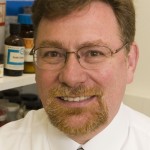
Patrick J. Parsons, Deputy Director, Wadsworth Center Division of Environmental Health Sciences; Lab Chief, Wadsworth Center, Laboratory of Inorganic & Nuclear Chemistry; Professor and Chair, University at Albany, School of Public Health, Environmental Health Sciences, USA
Dr. Patrick Parsons is Chief of the Laboratory of Inorganic and Nuclear Chemistry and Deputy Director of the Division of Environmental Health Sciences at the New York State Department of Health’s Wadsworth Center, Albany NY. He also holds an academic appointment with the University at Albany’s School of Public Health, where he is Professor and Chair of the Department of Environmental Health Sciences. He received his Ph.D. degree in 1983 from the University of London, and he was a Visiting Fellow at NIH from 1984 to 1986.
Dr. Parsons oversees the New York State Department of Health’s Proficiency testing program for trace elements in body fluids, which includes cobalt and chromium in whole blood. He also directs the Wadsworth Center’s clinical trace elements laboratory. Dr. Parsons’ research interests have focused on monitoring human exposure to trace elements; coupling separation techniques with inorganic mass spectrometry for characterizing metal species in biological tissues and fluids; and measuring human exposure to the long-lived actinides by Sector Field ICP-MS. NIH grant funding currently supports his research, and his lab also receives support from the CDC. He has authored or coauthored more than 130 papers and book chapters. Dr. Parsons is a Fellow of the Royal Society of Chemistry, London, a member of the American Chemical Society (ACS) and the American Association of Clinical Chemistry (AACC).
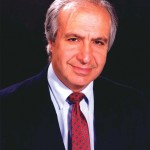
Philip N. Patsalos, FRCPath, PhD Professor of Clinical Pharmacology, Therapeutic Drug Monitoring Unit, Chalfont Centre for Epilepsy, UK
Philip Patsalos is a Consultant Clinical Pharmacologist, a Professor of Clinical Pharmacology and Head of Pharmacology and Therapeutics at University College London-Institute of Neurology, at the National Hospital for Neurology and Neurosurgery, Queen Square and at the Epilepsy Society, Chalfont St Peter, UK.
Professor Patsalos’ clinical and research interests relate to the therapeutics of epilepsy and include: new drug treatments and strategies, new drug development (Phase II and III trials) and formulations, pharmacokinetic profiling and drug interactions. He has in excess of 200 publications (books, book chapters and peer reviewed papers) and has served on various International League Against Epilepsy committees (including the Commission on Therapeutic Strategies, the Sub-Commission on Polytherapy and Drug Interaction and the Sub-Commission on Therapeutic Drug Monitoring) and International Association of Therapeutic Drug Monitoring and Clinical Toxicology committees (including the Clinical Pharmacokinetics Committee and the Impact of Therapeutic Drug Monitoring on Pharmacoeconomics Committee).
He is presently an Editorial Board member of numerous journals including Drugs, Epilepsy Research and Treatment, European Neurology Journal, Expert Opinion on Emerging Drugs, Expert Review of Clinical Pharmacology, and Therapeutic Drug Monitoring. He is also Associate Editor of Epilepsia and of the Journal of Epileptology.

Page B. Pennell, Director of Research, Epilepsy Division, Department of Neurology, Brigham and Women’s Hospital, USA
Page B. Pennell, MD is Associate Professor of Neurology at Harvard Medical School and Director of Research for the Division of Epilepsy, EEG, and Sleep in the Department of Neurology at Brigham and Women’s Hospital (BWH), with a secondary appointment in the Division of Women’s Health. She is a clinician investigator with a focus on sex-specific outcomes in epilepsy. Dr. Pennell’s current clinical studies focus on the effects of hormones on seizure provocation, pharmacokinetic changes of AEDs with exogenous hormones or differing reproductive phases, and maternal and fetal outcomes during pregnancy in women with epilepsy. Collaborative, multi-center studies have included funding from industry, non-profit foundations and NIH; these studies have included treatment of women with epilepsy with hormone therapeutics, study of the effects of epilepsy and antiepileptic drugs (AEDs) on sex steroid hormones and the functional consequences, and study of women with epilepsy during pregnancy. This has culminated in the recent NIH-funding of a multi-center clinical trial across 20 sites, Maternal Outcomes and Neurodevelopmental Effects of AEDs (MONEAD), by NINDS and NICHD, https://web.emmes.com/study/monead/index.htm. Dr. Pennell serves as multi-Principal Investigator of this project along with Dr. Kimford Meador. Involvement in other current studies include a three-site study of fertility, seizure frequency and relationship to hormonal status, Women with Epilepsy: Pregnancy Outcomes and Deliveries (WEPOD), and the study Pharmacogenics and Pharmacokinetics in Early Pregnancy (P-PEP). Dr. Pennell is also Principal Investigator of a study examining effects of reproductive hormones and neuroactive steroids on seizure control during pregnancy, funded by NINDS.
Simona Pichini, Department of Therapeutic Research and Medicines Evaluation, Istituto Superiore di Sanità, Rome, Italy
Simona Pichini, PhD in Clinical Pharmacology, is a Senior Investigator at the Department of Threrapeutic Research and Medicines evaluation of National Institute of Health, Rome Italy. Since 1998 she is also invited investigator at Neuropsychopharmacology Programme of Institut Municipal d’Investigació Mèdica- Hospital del Mar, Barcelona Spain.
Her principal fields of investigations are:
- Pharmacokinetics and toxicokinetics of drugs, drugs of abuse and doping agents in conventional and non conventional biological matrices; – Assay development and validation and drug monitoring in conventional and non conventional biological matrices; Immunopharmacology and immunotoxicology of drugs and drugs of abuse in animal and human models. She is the authors of more than 200 peer-reviewed publications and books chapters in the field of drug monitoring in non conventional matrices.
- Italian representative at the EUFASD Alliance, the European association studies of the effects of alcohol during pregnancy from 2010.
- Head of the Scientific Group SIFASD: Italian Society for the study of fetal alcohol spectrum disorders.
- Italian National counterpart on alcohol policy at World Health Organization
Award of excellence from the International Association of Forensic Toxicologists, 2010. - Member of the Official Board of the Society of Hair Testing “since May 2004
- Member of the Editorial Board of “Therapeutic Drug Monitoring” from April 2005
- Member of Editorial Board of “Journal of Pharmaceutical and Biomedical Analysis” from June 2007
- Member of the Ethics Committee of the National Institute of Health from July 2007.

Franck Saint-Marcoux, Pharmacist–Researcher, Department of Pharmacology and Toxicology, University Hospital of Limoges, France
Dr Franck Saint-Marcoux is President of the TDM group of the French Society of Pharmacology and Therapeutics (SFPT) and Chairman of the IATDMCT Pharmacometrics Committee. He is currently responsible of the Pharmacology and Pharmacokinetic Unit of the Pharmacology and Toxicology department of the Limoges University Hospital (France), and is a member of the INSERM research unit “Pharmacology of the immunosuppressive drugs in transplantation” directed by Prof. Pierre MARQUET.
Dr Franck Saint-Marcoux obtained a Master of Advanced Studies in Pharmacy and a PhD in Pharmacokinetic Modelling in 2004. His research activity is focused on the development of PK tools useful for a routine activity of TDM, mainly immunosuppressants, but also antibiotics or anticancer drugs. He is author or co-author of over 40 papers in peer-reviewed international journals.
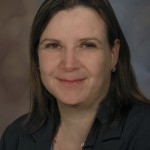
Catherine M.T. Sherwin,Assistant Professor, Department of Pediatrics, University of Utah School of Medicine, USA
Dr. Sherwin completed her PhD in Clinical Pharmacology in the Department of Pediatrics and Women’s Health at the University of Otago, New Zealand in 2007. Her Postdoctoral training included a Fellowship in Pediatrics and Child Health at the University of Otago and a Postdoctoral Research Fellowship in the Divisions of Clinical Pharmacology and Pediatric Rheumatology at Cincinnati Children’s Hospital Medical Center, Ohio. Her predoctorate background: includes a BSc(Hons) in Toxicology and Immunology and nursing training with Cardiothoracic ICU experience. These experiences afford her an in depth understanding of the clinical needs and issues associated with clinical research. Dr. Sherwin obtained board certification in Clinical/Applied Pharmacology from the American Board of Clinical Pharmacology in 2011. She is currently an Assistant Professor at the University of Utah, Division of Clinical Pharmacology and the Clinical Trials Office, Department of Pediatrics. There she is involved in the design, review and analysis of pharmacology studies and trials undertaken in special populations (pediatrics, pregnant women, cultural/ethnic groups, rare diseases etc.). Dr. Sherwin’s current research involves understanding the pharmacology of drugs in neonatal, pediatric and obstetric populations specifically in the techniques of pharmacometric modeling and scaling which are crucial for clinical trials in special populations. Her interests and expertise include numerous drug classes including antibiotics, immunosuppressants, antiepileptics, anesthetic agents and opioids.
Christophe Stove, Laboratory of Toxicology, Ghent University, Belgium
After graduating as a pharmacist in 1999 at Ghent University, Belgium, Christophe Stove obtained a PhD scholarship from the Fund for Scientific Research – Flanders to do fundamental cancer research in the Laboratory of Experimental Cancerology at the Faculty of Medicine and Health Sciences at Ghent Univeristy. This PhD, in which the role of growth factors and cell adhesion molecules in melanoma and breast cancer was studied, was awarded the Pfizer prize for best PhD in Medical Sciences. Next, he pursued a molecular biology-oriented postdoctoral fellowship at the Department of Molecular Biology – the Flemish Institute for Biotechnology at the Faculty of Sciences of Ghent University, still being active in fundamental cancer research.
In 2007 he returned to his home Faculty, the Faculty of Pharmaceutical Sciences, to take up a postdoctoral fellowship at the Laboratory of Toxicology, headed by Prof. Willy Lambert. Early 2013 Christophe Stove was appointed assistant professor tenure track at Ghent University. One of his research focuses -with different research lines running- is the development of alternative strategies for the GC-MS and LC-MS/MS-based measurement of endogenous molecules and drugs (of abuse) in biological matrices. In this context, his interest particularly lies in the use of alternative matrices and/or alternative sampling strategies, with special emphasis on dried blood spots. Christophe Stove is a young scientist member of TIAFT and IATDMCT and, since early 2013, became chair of the IATDMCT New Sampling Strategies Committee.
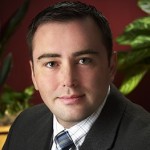
Frederick G. Strathmann, Assistant Professor of Pathology, Department of Pathology, University of Utah, Medical Director of Toxicology, ARUP Laboratories, Salt Lake City, USA
Frederick G. Strathmann is a medical director of Toxicology at ARUP Laboratories and a tenure track assistant professor of Pathology at the University of Utah School of Medicine. As a medical director of Toxicology, he oversees testing for the Trace and Toxic Elements and Clinical Toxicology Laboratories. He received his MS and PhD in Pathology & Laboratory Medicine from the University of Rochester and was a postdoctoral fellow in the department of Biomedical Genetics at the University of Rochester. He completed a clinical chemistry fellowship at the University of Washington in Seattle and is board certified in both clinical chemistry and toxicological chemistry by the American Board of Clinical Chemistry.
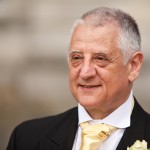
Andrew Taylor, Clinical Laboratory, Royal Surrey County Hospital, UK
Andrew Taylor PhD is a Consultant Clinical Scientist at the Department of Clinical Biochemistry, Royal Surrey County Hospital, Guildford, UK and Honorary Reader of the Faculty of Health and Medical Sciences at the University of Surrey Guildford, UK. His main responsibilities are as Director of the Supra-regional Assay Service Trace Element Centre which provides an analytical, interpretive and consultative service to clinicians throughout the UK. He established and directs an international quality assessment scheme for the measurement of trace elements in biological fluids that now has over 120 participating laboratories based in about 20 countries. He acted as coordinator of an international network for organisers of external quality assessment schemes for occupational and environmental laboratory medicine from 1998 to 2012 Related initiatives include measurement of the impact of quality assessment on analytical performance, evaluation of parameters contributing to good and poor laboratory performance, and preparation of reference materials.
Research interests cover topics relating to the clinical biochemistry of trace elements, including the metabolism of gold compounds in rheumatoid arthritis, mechanisms for the toxicity of aluminium, dietary trace element intakes in infants, development of new and improved analytical procedures, quality control/assessment as a stimulus to improved analytical standards. He is also involved with teaching and training of clinical chemistry, examining for UK and overseas universities and is a senior member of the UK Association for Clinical Biochemistry and Laboratory Medicine. As a UKAS accreditation assessor he regularly visits laboratories to determine compliance to international standards.
Paul Taylor, Department of Clinical Pharmacology, Princess Alexandra Hospital, Australia
Paul Taylor currently holds the position of Senior Scientist, Department of Clinical Pharmacology, Princess Alexandra Hospital, Brisbane, Australia. The focus of his research, over the past 15 years, has been on the application of LC-mass spectrometry to the clinical setting with emphasis on therapeutic drug monitoring, pharmacodynamic monitoring, biomarkers, assay development, and method validation. Paul’s current research has centred on the improved diagnosis of primary aldosteronism using LC-mass spectrometry, improved patient outcomes through individualisation of the newer immunosuppressant drugs and detection of the iron biomarker, hepcidin, by LC-mass spectrometry. Paul has published over 80 peer reviewed papers and 140 abstracts. Paul is an Editor of the Journal of Chromatography B and on the editorial board of Therapeutic Drug Monitoring. In 2003, he was awarded the International Association of Therapeutic Drug Monitoring and Clinical Toxicology “Young Investigator Award.”
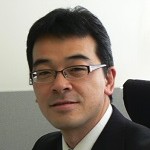
Tomohiro Terada, Department of Pharmacy, Shiga University of Medical Science Hospital, Japan
Tomohiro Terada is Professor and Director, Department of Pharmacy, Shiga University of Medical Science Hospital. He received his B.S. (1994), M.S. (1996), and Ph.D. (1999) in Pharmaceutical Sciences from Kyoto University. Dr. Terada worked at the Department of Pharmacy, Kyoto University Hospital (2000-2009), and moved to current position at 2010. During the staff of Kyoto University Hospital, he visited as a research fellow at Gastrointestinal Unit, Massachusetts General Hospital, Boston, USA (2002).
His research interests include (1) molecular characterization of drug transporters and its clinical application and (2) clinical pharmacology of high-alert medications. He received the 2000 Award of the Membrane Society of Japan for Young Scientists (2000), the Pharmaceutical Society of Japan Award for Young Scientists (2006), and JSSX Award for Young Scientists (2010).
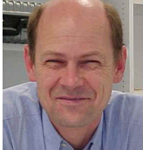
Daan Touw, Clinical Pharmacological and Toxicological Lab., Aptheek Haagse Ziekenhuizen, Netherlands.
Dr. D.J. Touw, Pharm D, PhD studied pharmaceutical sciences at State University Leiden (graduated 1984). He did his military service from 1984-1986. In 1986 he started as a trainee hospital pharmacist at Apotheek Haagse Ziekenhuizen (graduated 1989). Thereafter followed a traineeship as clinical pharmacologist. He did his PhDship on clinical pharmacology of intravenous tobramycin and development of an inhalation form of tobramycin in patients with cystic fibrosis (graduated 1996). He worked in the University hospital Vrije Universiteit from 1995 – 2000. He then became head of the clinical pharmaceutical and toxicological laboratory at Apotheek Haagse Ziekenhuizen.
Present research area: Clinical pharmacology and clinical pharmacokinetics of drugs in various area’s; Cystic Fibrosis, neonates, HIV patients, patients on dialysis. Clinical pharmacogenetics of drugs.
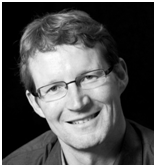
Teun van Gelder, Erasmus Medical Center, Rotterdam, The Netherlands
Prof. Dr. Teun van Gelder, MD, PhD is an internist-nephrologist and clinical pharmacologist in the Departments of Hospital Pharmacy and Internal Medicine at the Erasmus Medical Center in Rotterdam, the Netherlands. He was trained in internal medicine and nephrology at the Erasmus Medical Center, and completed his thesis in 1996 on the use of anti-interleukin-2 receptor monoclonal antibodies in solid organ transplantation. As a post-doctoral scientist, he worked in the Transplantation Immunology Laboratory of Dr. Randall E. Morris at Stanford University (1998-2000), and was awarded the Young Investigator Award from the American Society for Transplantation for his work during this time. Prof. Dr. van Gelder’s current research at the Erasmus Medical Center is focused on clinical pharmacology and therapeutic drug monitoring. In 2010 he was appointed Professor in Clinical Pharmacology. He is the chairman of the Dutch Society for Clinical Pharmacology & Biopharmacy and the secretary of the Dutch Society for Transplantation.

Erik M. van Maarseveen, lead pharmacist of the TDM & Toxicology laboratory at the University Medical Center Utrecht, The Netherlands
Erik M. van Maarseveen, PharmD, is the lead pharmacist of the TDM & Toxicology laboratory at the University Medical Center Utrecht, The Netherlands. He is also a registered clinical pharmacist and a clinical pharmacologist-trainee.
Van Maarseveen is a PhD candidate under the supervision of Dr. Daniel J. Touw and Dr. Cees Neef since 2009. His PhD project is on optimizing PK/PD relationships of aminoglycosides and vancomycin with a focus on toxicity. Furthermore, he is an active researcher in the fields of transplant pharmacology, pharmacokinetics of antiretrovirals and veterinarian pharmacology among others.
Alexander A. Vinks, Professor and Division Director, Division of Clinical Pharmacology, Cincinnati Children’s Hospital and Medical Center, USA
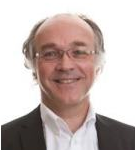
Alexander A. Vinks, PharmD, PhD is Professor of Pediatrics and Pharmacology at the University of Cincinnati, College of Medicine. He is director of the Division of Clinical Pharmacology and served as the principal investigator of the former NICHD Pediatric Pharmacology Research Unit at Cincinnati Children’s Hospital Medical Center. He is the program director of a T32 training program in Pediatric Clinical and Developmental Pharmacology, co-director of the Genetic Pharmacology Service and interim scientific director of Pharmacy Research at Cincinnati Children’s. He also directs the Laboratory of Applied Pharmacokinetics and Therapeutic Drug Management and as well as a multidisciplinary Pharmacometrics Core.
Dr. Vinks is the immediate past president of the International Association of Therapeutic Drug Monitoring and Clinical Toxicology.
His major research interests include pharmacokinetic-pharmacodynamic (PK/PD) modeling, pharmacogenetics (PG) and the application of genomic, population and simulation approaches (Pharmacometrics) to pediatric and adult clinical trial design and Therapeutic Drug Management.

Ping Wang, Pathology and Genomic Medicine, The Methodist Hospital, USA
Dr. Ping Wang is currently Director of Clinical Chemistry at The Methodist Hospital at Houston TX. She is also Assistant Professor of Clinical Pathology and Laboratory Medicine at Weill Cornell Medical College. Dr Wang obtained her Ph.D. from University of Wisconsin Madison, and completed a clinical chemistry postdoctoral fellowship at University of California San Francisco. She is board certified in clinical chemistry, toxicological chemistry and molecular diagnostics. Dr. Wang’s clinical and research interest focuses on toxicology, molecular markers to optimize drug dosing and method development for clinical laboratory. She has published over 40 papers, abstracts and book chapters in these fields. Dr. Wang is Member-at-large of the TDM and Toxicology division of AACC and on Board of Directors of ABCC.



















